North Darfur: Displaced from El Fasher find safety in Qarni ‘after going through hell’
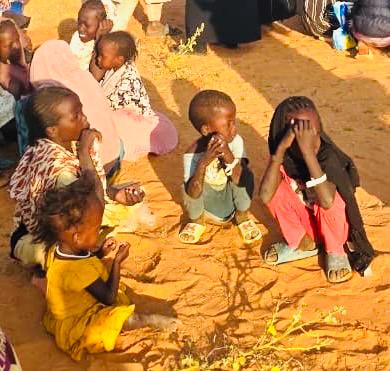
Fur children with their families from El Fasher: Radio Dabanga
Report by Abdelmoneim Madibu for Radio Dabanga
As the fighting intensified, resulting in the Rapid Support Forces (RSF) seizing control of El Fasher and the withdrawal of the Sudanese Armed Forces (SAF) and the Joint Operations Command, waves of displaced people streamed north towards the Qarni area. Hundreds of families sought refuge there, fleeing amidst the whizzing bullets and the smoke of fires that blanketed the city’s skies. On the roads of displacement, dust mingled with tears of loss, and in Qarni, a new story of survival began, told by faces worn down by fear they had endured for over 500 days, yet still clinging to life.
During field surveys conducted by Radio Dabanga with a number of those who fled El Fasher, survivors spoke of a perilous journey during which they lost contact with the rest of their families, and of the generous welcome they received from the area’s residents who opened their homes and hearts to the displaced. Their testimonies paint a tragic picture, but they also reveal a rare solidarity that is healing the wounds of those who survived the war.
The journey to escape death
Victim of the displacement, Ashar Makki, one of the first to arrive in Qarni, told Radio Dabanga that he left El Fasher on October 29, three days after the Rapid Support Forces (RSF) took control of the city. “Thank God we arrived in Qarni. People from aid organisations welcomed us warmly and provided us with food and water. Thank God we found life after being lost… The food and medicine here are a thousand times better than in El Fasher.” Makki added to Radio Dabanga, fighting back tears, “I reassured my family in Kabkabiya and the Egyptian government that I am alive. We are now in the hands of aid organisations who helped us by providing food, water, and medicine. The situation is a thousand times better than in El Fasher.”
After feeling a sense of relative safety, Haj Makki began to consider his next move: returning to El Fasher or continuing on to another location. He said, “Now we’re trying to find a way to reach a remote area and from there try to travel to my children, or we’ll return to El Fasher to check on our homes and living quarters. We’ve been told they’re currently cleaning up El Fasher. If we go back, we can help them, and they can help us, since there’s a new government in place.” He added that the information he had was that the situation in El Fasher was dire, with no water or healthcare available. Naamat Yahya El Zein told Radio Dabanga that organisations had provided them with some food and water so far, but they were suffering from a lack of clothing, blankets, and mattresses in the face of the winter weather. She said, “We left El Fasher with nothing but the clothes on our backs, so now we need clothes, blankets, and mattresses.”
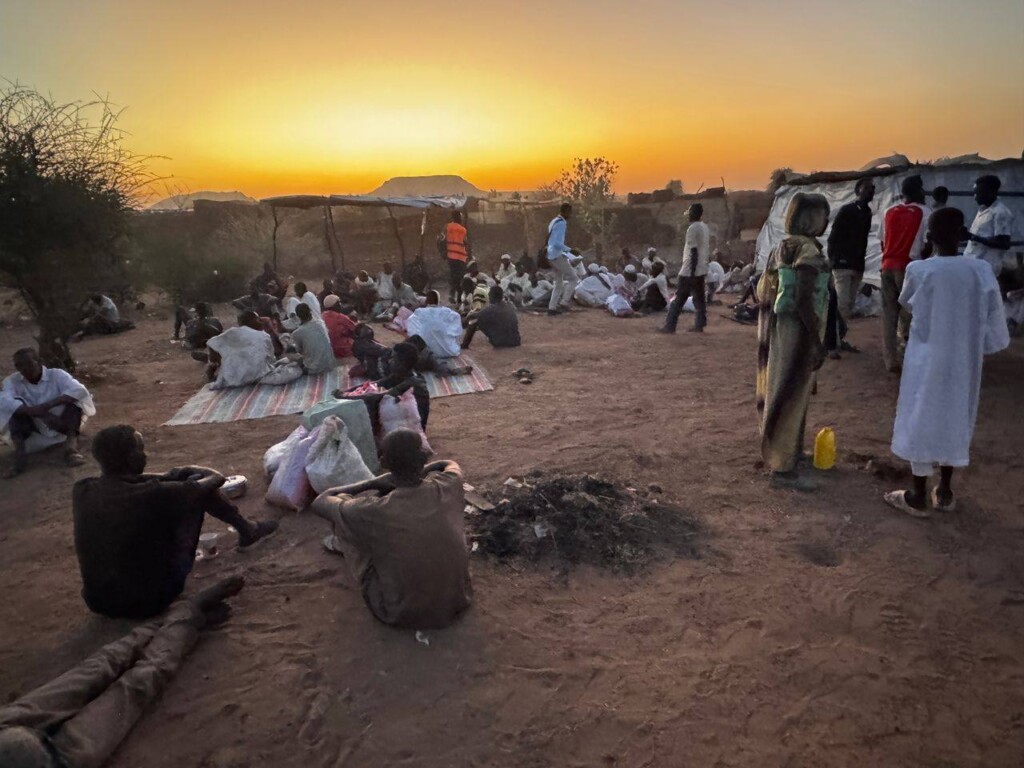
‘They don’t know where they’re going’
Ali Abdullah Ahmed, who was displaced from Kutum to El Fasher at the start of the April 15, 2020 war, recounts another harrowing journey of displacement: He told Radio Dabanga: “After the Rapid Support Forces took control of El Fasher, we fled. They rounded us up on the road and put us in four tractors. We didn’t know where we were going. We stayed for 17 days in the port area, and then they told us we were exempt and brought us here to Qarni. We’re here now.” Hajj Abdullah asked his sons in Libya to send him money so he could travel to his other children in Kutum or Tawila, before he choked up and burst into tears when he mentioned his two wives, Maryam Bakhit and Kalthoum Musa. He concluded, his voice trembling, “I have no mattress or blanket, but we rely on God.”
Women who have lost everything but hope
Suad El Tahir Abdullah, a resident of North Ahliya in El Fasher, spoke while wiping the dust from her face: “We came from El Fasher after losing our people in Kabkabiya. My brother, Omar al-Tahir, died in the war, and I was going to Sarf Umrah and came with him. Now there’s no way for me to return to Khartoum or Kabkabiya.” She added with sorrow: “We’re stuck in the mud. There’s no water, no toilets, no rest. Everyone is suffering. I just want a way to get out of here and reach my children in Mellit.” Suad mentioned that she lost several family members in El Fasher while they were heading to the Qarni area two weeks ago. She added, “We lost them in the street, and now we’re waiting. Maybe they’ll come back at any moment.”
Local initiatives and humanitarian organisations
Despite the difficult circumstances, many displaced people praise the initiatives of the local community and organisations in the area. Ibrahim Abdullah, displaced from El Fasher, told Radio Dabanga, “After we arrived, they set up a soup kitchen for us, and thank God, food is available. The organisations brought us some aid, like biscuits and medicine, but we lack blankets and mattresses.” He added, “The people here welcomed us well; may God reward them.”
Mohammed Adam Idris, from the Makarka neighborhood, made an urgent appeal to humanitarian organisations: “Give us dates, flour, oil, and sugar, but we need medicine and money. Many people are sick and need treatment.”
The displaced people in Qarni are united in their demand: continued food and health support, especially with the onset of winter and the increasing number of arrivals from El Fasher and surrounding areas. Qarni has become a new gathering point for displaced people from El Fasher, Kutum, and other areas of North Darfur.
International aid agency intervenes
Meanwhile, the International Relief and Humanitarian Operations Agency (IRIA) dispatched humanitarian convoys carrying food supplies to displaced people in the Qarni area. The agency stated that it has intensified its humanitarian operations to meet the needs of both residents and displaced people in the region. IRIA indicated that the need for humanitarian aid in the area is immense and requires urgent intervention from humanitarian organisations. An official from the agency stated that its staff are currently conducting a census of displaced people, after which food aid distribution will begin. He noted that the area is currently facing shortages of drinking water, sanitation services, and shelter.
Despite a relative improvement in security, the humanitarian situation remains critical. Nevertheless, the displaced cling to the hope of returning home, anticipating an end to the war soon.
The stories of Dahia, Ismail, Suad, and others interviewed by Radio Dabanga are just a few examples of the suffering endured by thousands of Sudanese who have found themselves caught between the flames of war and displacement.
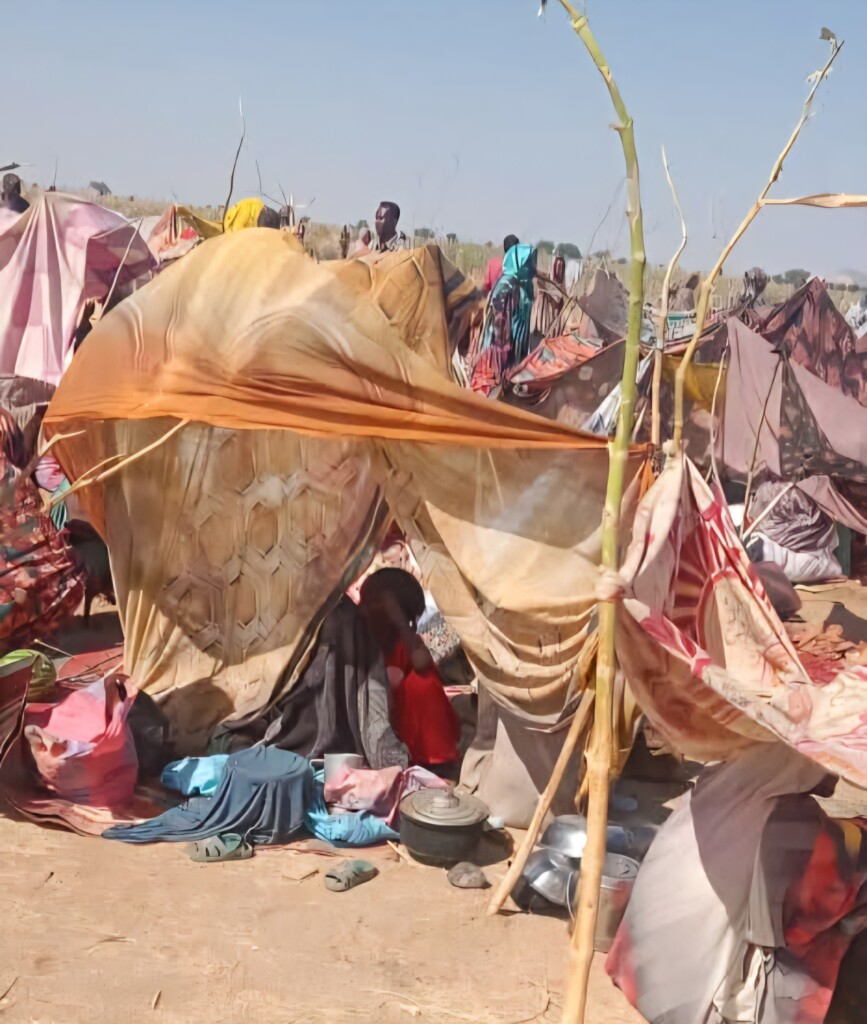







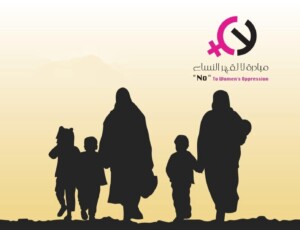
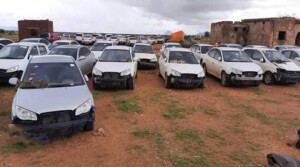


 and then
and then